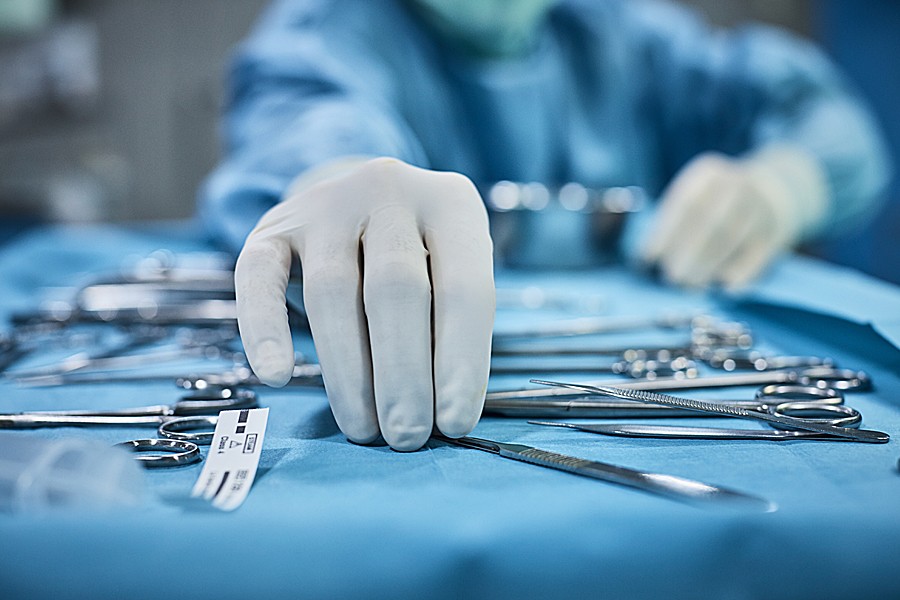A new grant program will help teams led by Johns Hopkins University faculty use technology to teach tricky surgery skills, hold a music-oriented hackathon, help high schoolers get a handle on chemistry, and more.
In total, six projects were chosen from among 64 proposals for the inaugural Digital Education and Learning Technology Acceleration, or DELTA, grants, which offer up to $75,000 to each recipient to develop, implement, and evaluate new digital education initiatives that can enhance teaching and learning at Johns Hopkins, whether online or on its campuses.
Stephen Gange, executive vice provost for academic affairs, says that over the past several years, Johns Hopkins' online graduate degrees, certificates, and trainings have been expanding significantly, and the university's massive open online courses, which are offered through a partnership with Coursera, have drawn more than 6 million enrollments. The DELTA grant program was founded with proceeds from those MOOCs.
"The breadth of innovative ideas for expanding our educational endeavors was very impressive," Gange says about the DELTA proposals that were submitted. "The first six recipients have projects that will harness technology in new ways to engage learners, excite instructors, and have a genuine impact on our communities."
The 2018 DELTA grant recipients are:
Augmented Reality for Immersive 3-D Education in Complex Pelvic Trauma Surgery
Principal investigator: Greg M. Osgood, chief of Orthopaedic Trauma, Department of Orthopaedic Surgery, School of Medicine
The key challenge in treating unstable pelvic fractures, the proposal says, is that the doctors have to do mental mapping of plate positioning and screw trajectories to the fractured anatomy, a skill that surgeons-in-training cannot easily acquire from conventional two-dimensional materials. The grant will be used to create a three-dimensional learning environment that incorporates augmented reality.
Faculty Forward: A Faculty Fellows Program Focused on Best Practices in Teaching and Learning and Technology
Principal investigator: Tim Collins, program chair of Engineering Management and of Technical Management, Engineering for Professionals, Whiting School of Engineering
Faculty Forward is designed as a blended faculty development program for instructors who teach online or with digital technology. The program includes several days of intensive workshop sessions combined with online modules that will model the best practices in teaching and learning, online course design, and innovative uses of technology. The project team anticipates that the faculty fellows who complete the program will push the boundaries for what is possible in online and digital learning.
Hacking Harmony
Principal Investigator: Susan Forscher Weiss, professor of musicology, Peabody Institute
Traditionally, hackathons focus on teams leveraging their technical expertise to find new solutions to a problem. This project proposes asking Peabody music students to partner with students in computer science and engineering from the Homewood campus to create apps, devices, or wearable tech items that allow the user to explore and learn about an aspect of music performance or music history.
Personalized Augmented Reality as an Interactive Teaching Tool for Facial Anatomy
Principal investigators: Nikki Tang and Elise Ng, cutaneous surgery and oncology unit, Department of Dermatology, School of Medicine
According to the proposal, anatomy is one of the most challenging subject matters to both teach and learn, and facial anatomy is one of the most complex regions. This project proposes to design an augmented reality simulator that will help teach this especially challenging aspect of anatomy.
Voices From Afar: Introducing Global Perspectives Into Public Health Teaching and Learning
Principal investigator: Sukon Kanchanaraksa, director of the Center for Teaching and Learning and senior scientist, Department of Epidemiology, Bloomberg School of Public Health
This project will acquire and deploy a system to enable simple and cost-effective production of high-quality video interviews with public health experts located all over the world, thereby incorporating a more diverse array of voices and perspectives into the Bloomberg School's online courses and degree programs. Previous efforts to produce video interviews with remote subject matter experts were hindered by technological and logistical barriers.
YesYouChem: An Online Summer Program to Prepare Students From Underperforming High Schools to Succeed in Chemistry
Principal investigators: Jane Greco, Department of Chemistry, Krieger School of Arts and Sciences; Patty McGuiggan, Department of Materials Science and Engineering, Whiting School of Engineering; Irene Ferguson, Center for Student Success
This proposal says that limited exposure to chemical and mathematical concepts in high school presents a barrier to success in introductory chemistry and offers a plan to develop an online instruction platform. The modules will include video instruction, practice problems, tests, and interviews with Hopkins undergraduates who use the concepts as part of their research.
Posted in News+Info, Tools+Tech








